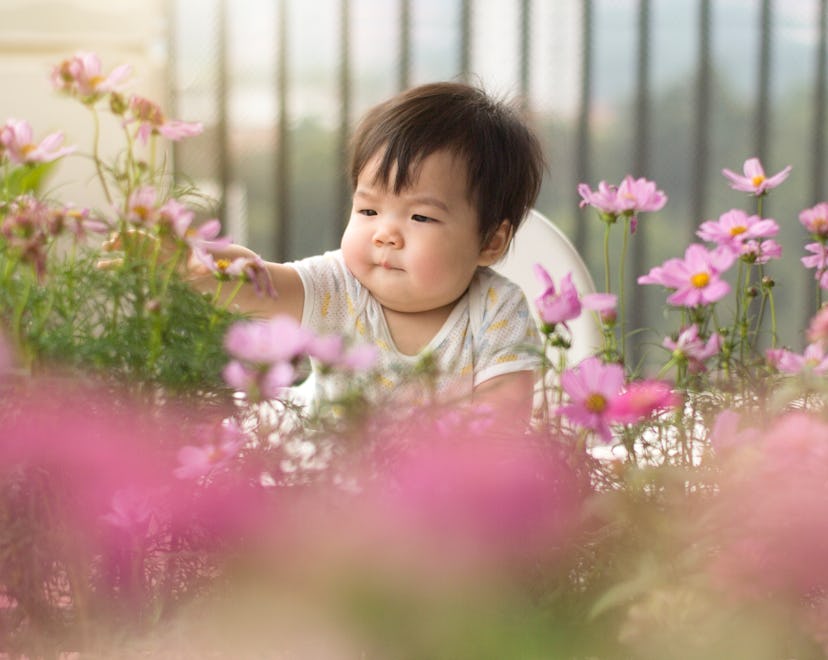Allergy Season

Can Babies Have Seasonal Allergies?
Actually, that’s a great question.
As someone who lives in Georgia, instead of getting snow and being able to say, “Oh, it snowed overnight,” we typically comment on how it “pollened” overnight during the months of March through September. We have so many trees, lush gardens, and flowers here, that they tend to produce a lot of pollen and allergens. I have had seasonal allergies as long as I can remember, but does that mean that when I see my baby’s nose running, could he have them too? Can babies get seasonal allergies?
Can babies have seasonal allergies?
“For seasonal allergies, we’re reacting to the pollens and molds that are in our environment. We have to see them a couple times before we start reacting to them,” explains Dr. Natasha Burgert, a pediatrician and spokesperson for the American Academy of Pediatrics (AAP). “The earliest I've ever truly seen a seasonal allergy trigger in a child has been about 18 to 20 months.”
“We don’t see many seasonal allergies until age 2 or more (they can definitely have allergies to foods and other environmental things before that),” agrees Dr. Gina Posner, a pediatrician in Fountain Valley, California. So that runny nose your baby has is much more likely to be caused by a virus than a seasonal allergy. And as ever, if you’re worried about their well being, don’t hesitate to call your pediatrician.
When do kids develop seasonal allergies?
“Seasonal allergies usually first start developing between 3 to 5 years old,” says Dr. S. Daniel Ganjian, a pediatrician in Santa Monica, California. “Seasonal allergies take years to develop — different than food allergies — which can develop within the first few months of life.”
“Most kids are three to four before you truly notice that seasonality of those symptoms that your kids are experiencing,” Burgert agrees. “And of course seasonal allergies are very genetic. So mom and dad have seasonal allergies, likely the kids are too.”
How do you know the difference between a cold and seasonal allergies?
Ganjian says he gets asked this question quite a bit. “If your child has a fever, nasal congestion resolves within two to three weeks, or they were exposed to someone who is sick, then most likely your child has a cold,” he explains.
“Typically with allergies, [your child] will be itchy in their nose or eyes as well, so there is a lot of rubbing. We sometimes will try an allergy medicine and if it helps, we assume it is allergies,” Posner adds, saying that it can be hard to tell the difference if a baby is in day care or exposed to other children since they often have multiple colds back to back. For older children, Posner recommends using over-the-counter medications like Claritin or Zyrtec. “Benadryl also works, but it makes them sleepier and is short acting,” she adds.
While you don’t have to worry about your baby having seasonal allergies until they’re at least 2 years old and have experienced all the seasons, do be mindful of any signs of an allergic reaction to other environmental triggers, including food. Otherwise, a runny nose means they probably have a cold, and can be treated effectively by your pediatrician.
Experts:
Dr. Natasha Burgert, a pediatrician and spokesperson for the American Academy of Pediatrics (AAP)
Dr. S. Daniel Ganjian, a pediatrician in Santa Monica, California
Dr. Gina Posner, a pediatrician in Fountain Valley, California
This article was originally published on